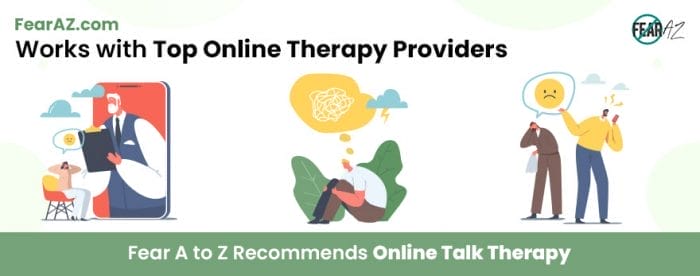Share This Article
Fear of Snakes Is Natural (to a Point)
Have you ever gone to the zoo and avoided going to the snake section?
Does watching the late Steve Irwin hunt black mamba on television make you physically sick?
If your answer to these questions is yes, then you most probably suffer from an excessive fear of snakes.
What is the fear of snakes called? The official name is Ophidiophobia.
Maybe it’s difficult for you and others close to you to understand why you avoid like the plague any movie that has a snake in it.
Snakes on a plane?
No way!!
You definitely can’t explaining the stark terror that grips you at the mere sight of these slithering creatures—even if they’re just on-screen.
Or how about the way your heart feels like it’s going to explode? Or the rivers of sweat that run down your back?
You’ve probably even had to leave the room on various occasions.
Living with this fear can be very difficult and may even be the bane of your existence. You may feel unsure about talking to anyone about it for fear of being ridiculed. For people who suffer from phobias, their fears are very real.
But don’t lose hope. There are ways to overcome your fear. But first, you need to get to the root cause.

What Causes the Fear of Snakes?
To understand how it all started, let’s take a stroll down memory lane. It may have been a bedtime story that you were told as a kid. One in which the snake was made out to be the villain. The story has played out in your memory far too many times and eventually took the form of a phobia. Or you had a close call with a real-life snake some time in your past, and you haven’t been able to get over it.
Sure, science calls this a survival defense mechanism, but for you it’s definitely an unpleasant anxiety you could do without.
Some Things You Need to Know about Ophidiophobia
Disliking something is very different from a phobia. If the mere thought of a subject or a discussion around it evokes feelings of anxiety and dread, it can be termed as phobia. The term ophidiophobia comes from ophis which means “snake” and phobia which means “fear.” Ophidiophobia ranks at number two among all phobias.
One in ten people have some kind of fear of snakes. Which means you’re not alone.
The fear of snakes can also come from a learned behavior. If you had a family member or an older sibling that had an unexplained fear of snakes, the chances are high that you learned that fear from them. Ophidiophobia can be all-encompassing. You may gradually begin to fear anything that has an indirect connection to snakes. For example, the thought of going trekking or camping may give you cold feet. You may also avoid visits to a zoo, a natural sanctuary, or even a pet store that sells snakes.
Ophidiophobia is also the most common phobia among all herpetophobia (the fear of reptiles). An article in The New York Times states that the widespread fear of snakes is perceptual and could be blamed on the pulvinar, a region in our brain. In other words, we have been conditioned evolutionarily to be afraid of snakes or similar forms.
Symptoms of Ophidiophobia
It can be very challenging to diagnose a fear of snakes, since symptoms tend to vary between people. People with a mild case of ophidiophobia may fear only large and venomous snakes.
In severe cases, even a small snake may trigger a panic attack. There are two kinds of symptoms that people suffering from ophidiophobia usually experience at the thought or sight of a snake, whether venomous or not.
Physical and psychological symptoms vary. These symptoms range from the standard physical ailments to serious psychological indications.
Physical Symptoms
- Increased heart rate
- Nausea
- Difficulty breathing
- Uncontrolled trembling
- Feeling lightheaded or dizzy
Psychological Symptoms
- Extreme anxiety
- Panic attacks
- Uncontrollable and obsessive thoughts
- Constant fear of encountering a snake
- Replaying images of snakes in the mind
- Constantly reliving fictional encounters with snakes
People with ophidiophobia may experience any or all of these symptoms which may worsen, depending on how close they get to a real snake.
How Do You Deal with Ophidiophobia?
Like all phobias, ophidiophobia is irrational. But if you find that this fear inhibits you from functioning normally or that the mere mention of a snake gives you the heebie-jeebies, consider getting professional help. While there is no particular treatment for a phobia, you can explore different treatment options.
Self-Help: What You Can Do to Help Yourself
Before you consider treatment options, consider ways to help yourself. Self-help is, after all, the first step. Start by convincing yourself that your fear is irrational. It is said that the mind will learn to believe things it hears over and over again. Keep making reassuring statements to yourself throughout the day.
Write down your thoughts to help you identify the patterns that lead to fear and anxiety. Focus on consciously replacing negative associations with positive beliefs and statements, which will help decrease the fear.
Relaxation techniques like deep breathing, controlled breathing, meditation, counting numbers, or making positive affirmations to yourself when faced with thoughts or images of snakes can also help.
Another alternative is to expose yourself to the very thing you fear. While it is easier said than done, you will find that with persistent effort, your anxiety will slowly begin to diminish. You can tailor any or all of these techniques to help you overcome your fears.
Professional Help for the Fear of Snakes: Available Options
Consider reaching out to a therapist for help with your phobia. The most common treatments are based on cognitive behavioral therapy techniques. Hypnotherapy and neuro-linguistic programming are also used. Most therapists encourage you to talk about your innate fears and your reasons for them while observing your composure. Through this, they find ways to break the pattern of your thought process.
Many mental health professionals use exposure therapies to help people work through their fears. One such technique is systematic desensitization, considered one of the most effective and efficient methods of treating ophidiophobia. It involves gradually exposing someone to what they are afraid of, so they become desensitized and no longer fear it.
It sounds simple, but it needs to be done very methodically and by a trusted mental health professional to prevent undue trauma. However, there is no one-size-fits-all solution.
Learning to Cope with Ophidiophobia
All of the above in no way guarantees that your anxiety or phobia will go away completely. What it means is that you won’t feel the same levels of anxiety as before and that you will have better control in managing your fear of snakes when it does arise.
A fear of snakes is very common, but is shouldn’t undermine you. By dealing with it, either by seeking professional help or asking for support from close family and friends, you can find ways to reduce your anxiety and lessen your fears.
You can also focus on positive thoughts or ask a trusted family member to talk you through an anxiety attack.
Reducing your fear from something that disrupts your life to something that causes only slight discomfort is more than half the battle.
Learning to manage your ophidiophobia can go a long way in leading a normal life. The next time you watch Jungle Book and listen to Kaa singing Trust in Me, take a deep breath, apply the techniques of systematic desensitization and sing right along.




